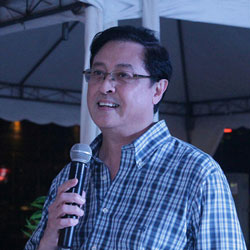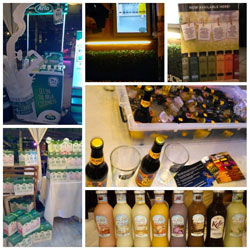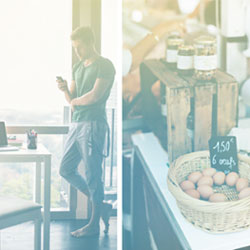Fostering a sense of community through the science of 'social'
September 29, 2015
BEYOND shopping, weekend markets today are transforming into community hubs for people to eat, gather, socialize and learn. Real-estate developers are realizing this growing appreciation for “social get-togethers” as people seem to always be on the lookout for places to cultivate relations.
Weekend markets not only nourish appetites and satisfy cravings; they also feed the public’s growing desire for connectivity. To keep things inclusive and interesting to the younger crowds, markets have now evolved to a point where they feature multidimensional leisure experiences.
Cultivating a unique sense of place
Thailand has Chatuchak, Morocco has the Jemaa el Fnaa, Melbourne has Queen Victoria and Istanbul has the Grand Bazaar—street markets among some of the world’s emerging residential and cultural hubs have also helped shape tourism by being sought-after attractions.
In the Metro Manila food scene, for example, weekend markets became a hit as it appealed to a growing number of Filipinos in search of a place that fosters connection inasmuch as it sells quality food. Pop-ups and seasonal night markets have become part of every property developers’ key tactics in engaging their respective markets, allowing visitors and would-be buyers to relax with live music and refreshments in hand.
The Legazpi and Salcedo market revolutionized the residential and leisure stage in Makati City and had since become synonymous to the perfect weekend brunch place. Meanwhile, the Mercato Centrale Group, with weekend markets from Metro Manila to Tagaytay and Cagayan de Oro, has also emerged as the Philippines’s premier food and lifestyle market with its success in redefining the Filipino food-trip experience. Other known markets include Quezon City’s AANI and Sidcor SundayMarket.
While Mandaluyong’s more commercial and highly urbanized residential communities have the Greenfield Weekend Market and Maker’s Market at Estancia at Capitol Commons, its residential flank in Shaw now houses a market of a new kind.
Nurturing a sense of community
Traceability gained local traction the moment Filipinos developed concern over where our food came from. With communes following shifts in the public’s eating preferences, markets have now advanced into integral cogs of local food systems, making it a growing food distribution channel. By giving local businesses space to sell and showcase their wares, weekend markets serve to foster deeper ties in its locale, breeding social connections between entrepreneurs and consumers, and vice versa.
I have the privilege of working with the men and women of Litton, a homegrown company known for its pioneering role in the Philippine textile industry, who have shifted their sights toward revitalizing emerging residential communities. They recently held the first run of its weekend market series at Mandala Park, a place formerly known as Liberty Center. A venue for Mandaluyong small and medium enterprises to blossom, the weekend market series serves as a platform for local start-ups and one-offs to showcase what they offer.
Featuring a selection of mostly Mandaluyong-based merchants curated by JJ Yulo and jazz performances by Basti Artadi, the recent Mandala Park weekend market gave visitors a laid-back afternoon of soothing music and good food. With the next one slated to happen this October 17, the Mandala Park weekend market series solidifies the community’s intent to deliver a kind of placemaking that’s built on a genuine desire to contribute to people’s health, happiness and wellbeing.
Wellness and sustainability: Two different concepts
Strategically located at the center of urban and economic vibrancy, Mandaluyong continues to celebrate its stature as a foundation of progress. A refreshing new take on the Mandaluyong narrative, Mandala Park is the result of Litton & Co. lending its legacy and expertise to the city’s regentrification.
Litton President and CEO Jojo Litton shared that the weekend market is an offshoot of Mandala Park’s vision. “People want to live well, there’s no argument in that. The question is: How do you concretize living well? How can you live well if you don’t have the facilities to support that ideal?” Jojo shared. “What we did with our planned community is to purposely create an environment that lets people live well by design,” he added.
He also stated that, “wellness and sustainability are totally different concepts, but by combining them and making it into a community,” what his company is doing makes for a better place for future generations to live in.
“What makes the Mandala Park unique is the open space,” Jojo narrated. “In a typical development, they pack up the density because that’s what makes money. But as you look around Mandala Park, it’s not all about that. With lots of greens and open spaces, and landscaping made right, I believe we’re actually making a difference.”
The burgeoning city of Mandaluyong rises up to the green challenge with last year’s passing of its Green Building Ordinance—a set of standards that help lower energy and water costs and reduce greenhouse-gas emissions.
“This green thing is not a fad. This is something that’s going stay. This is the future, and as I say, a lot of people are just waiting for the right place to make it available,” he ended.


